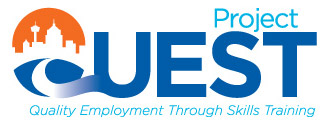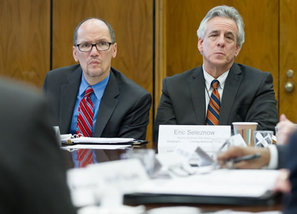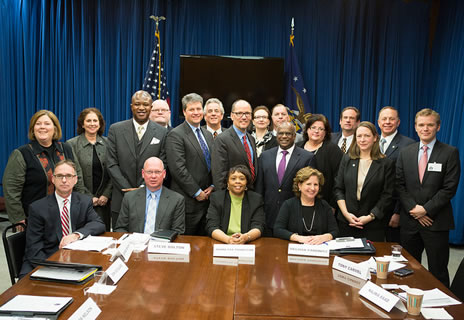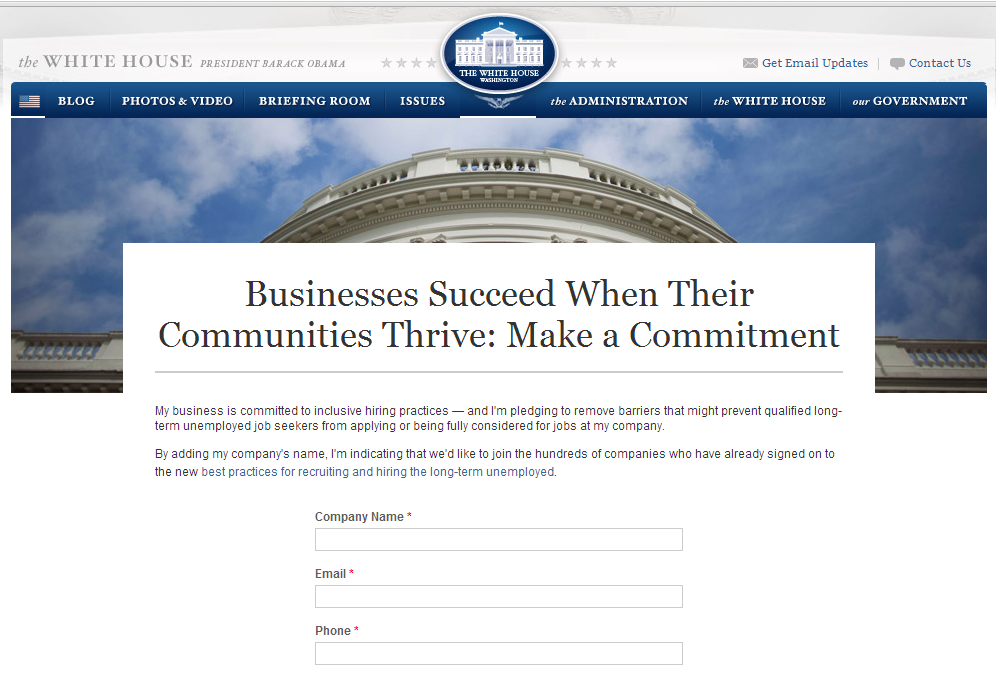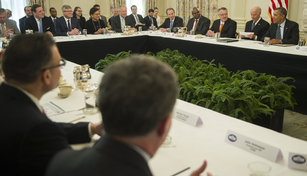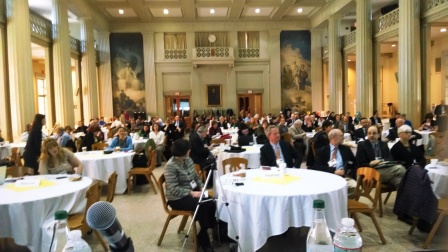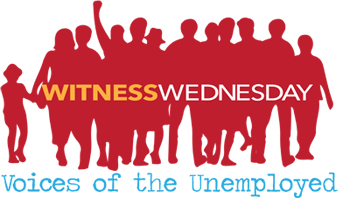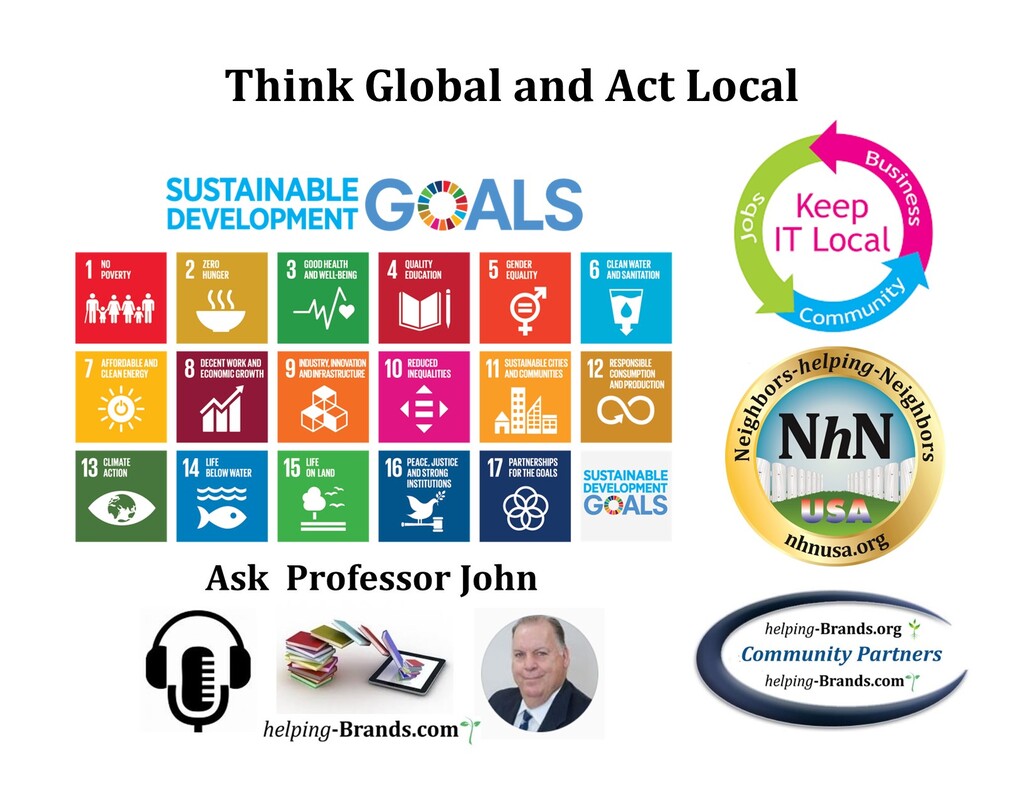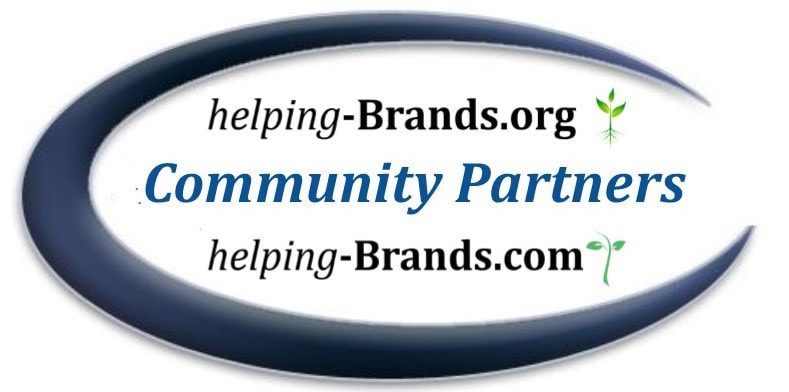Employment Barriers - Long Term UnemployedMany job seekers experience one or more barriers to employment during their careers. Age 50+ and LTU are common today in combination and this does make finding or keeping a job more difficult, it's not impossible. you need to stand out from your competition and be effective in presenting your value to your potential employer.
The H-1B Ready to Work grant program is designed to provide long-term unemployed workers with individualized counseling, training and supportive and specialized services leading to rapid employment in occupations and industries for which employers use H-1B visas to hire foreign workers. A small percentage of other unemployed and/or incumbent workers may also be served through this program.
The primary focus of these grants is to help those experiencing long-term unemployment – defined as 27 or more weeks – find jobs. The Ready to Work grants fund programs that can effectively recruit and serve long-term unemployed workers, and are built around a comprehensive, up-front assessment resulting in customized interventions across three tracks: 1) intensive coaching and other short-term, specialized services culminating in direct job placement into middle and high-skilled jobs; 2) short-term training leading to employment; and 3) accelerated skills training along a career pathway that leads to an industry-recognized credential and employment. These grants are financed by a user fee paid by employers to bring foreign workers into the United States under the H-1B nonimmigrant visa program. This program was authorized under Section 414 (c) of the American Competitiveness and Workforce Improvement Act of 1998 (ACWIA), as amended (29 USC 2916a) Newsletters
05/26/2016 - H-1B Grants E-Newsletter for RTW Grantees, May 2016
02/25/2016 - H-1B Grants E-Newsletter for RTW Grantees, February 2016 11/23/2015 - H-1B Grants E-Newsletter for RTW Grantees, November 2015 08/25/2015 - H-1B Grants E-Newsletter for RTW Grantees, August 2015 Ready to Work USAThe U.S. Department of Labor will announce tomorrow $169,771,960 in grants to expedite the employment of Americans struggling with long-term unemployment. The grants are part of the Ready to Work Partnership initiative to support and scale innovative collaborations between employers, nonprofit organizations and federal job training programs to help connect ready-to-work Americans with ready-to-be-filled jobs.
These grants are part of an administration-wide effort to address the ongoing issue of long-term unemployment. Secretary Perez and Jeff Zients, director of the National Economic Council, will meet with chief human resource officers of leading companies, including Citigroup Inc., CVS Caremark Corp., The Boeing Co. and Dow Chemical Co., among others, during a roundtable discussion hosted at the White House on Wednesday, Oct. 15, to discuss improvements these companies have made to increase recruitment of and eliminate barriers to hiring long-term unemployed individuals. The Office of Personnel Management will also issue guidance today to federal agencies on increasing recruitment and hiring of long-term unemployed individuals. All grants funded today will incorporate three primary functions: 1. Outreach and Recruitment Grantees will work with state unemployment insurance programs, the network of more than 2,500 American Job Centers around the country, community and faith-based organizations, job clubs and other worker advocate organizations to identity and recruit participants in need of training and supportive services. 2. Training and Support Services Participants in programs funded by these grants will receive job training and support services for occupations in information technology, advanced manufacturing, health care and other high-demand industries. Participants will receive a comprehensive, up-front assessment of their needs and skills. resulting in customized classroom and online training that will lead them to an industry-recognized degree or certificate. Participants will also receive financial counseling, child-care support, health care and other services to help them focus on finding a job. All of the grantees have also demonstrated strong partnerships with local employers and industry groups that offer work-based training opportunities, such as paid internships, on-the-job training or Registered Apprenticeships. Work-based training will allow long-term unemployed individuals to fill in gaps of employment in their resumes, gain first-hand experience with an employer and establish a direct link to permanent employment. 3. Placement Strategies All projects incorporate strong placement strategies to support long-term unemployed workers in finding rapid employment in middle- and high- skilled jobs. These projects will include a designated career coach to guide long-term unemployed individuals from the assessment period all the way to job placement. Services will include resume consultation, networking coaching, social media strategies and mock interview with employers. In addition, many projects include commitments from employers to hire or interview program participants following their completion of a work-based training program. For information please see: http://www.doleta.gov/readytowork/ |
SBDC |
Resources to help the Long Term Unemployed
Ready To Work Partnership Grant Awards
Ready To Work Grants
New Jersey
|
New York
Westchester-Putnam Local WIB White Plains NY $ 5,189,848
Westchester, Putnam, Dutchess, Rockland, and Orange counties |
New York |
Oregon
Worksystems Inc. Portland OR $ 8,455,004
Oregon: Banks, Barlow, Beaverton, Canby, Cornelius, Damascus, Durham, Estacada, Fairview, Forest Grove, Gaston, Gladstone, Gresham, Happy Valley, Hillsboro, Johnson City, King City, Lake Oswego, Maywood Park, Milwaukie, Molalla, North Plains, Oregon City, Portland, Rivergrove, Sandy, Sherwood, Tigard, Troutdale, Tualatin, West Linn, Wilsonville, Wood Village. Washington: Battle Ground, Camas, Castle Rock, Cathlamet, Kalama, Kelso, Longview, Ridgefield, Vancouver, Washougal, Woodland, and Yacolt |
California
Jewish Vocational Service
San Francisco CA $ 6,396,276 Alameda, Contra Costa, and San Francisco counties Spencer Perry - Director, Technology Programs
JVS - Work Transforms Lives 225 Bush St. Suite 400 - West Lobby, San Francisco, CA 94104 T: (415) 782-6238 | F: (415) 391-3617 | W: www.jvs.org | E: sperry@jvs.org |
California |
Colorado
Denver Office of Economic Development Denver CO $ 6,172,569
Adams, Arapahoe, Boulder, Broomfield, Denver, Douglas, Jefferson, Larimer, Mesa, and Weld counties www.tecpcolorado.com Liz Ojeda | TEC-P Project Administrator OED |
City and County of Denver 720.913.1650 Phone | 720.350.8681 Cell elizabeth.ojeda@denvergov.org www.denvergov.org/tecp |
Florida
CareerSource North Central Florida
Gainesville FL $ 10,000,000 Alachua, Bradford, Gadsden, Leon, Wakulla, Flagler, and Volusia counties |
FloridaFlorida State College at Jacksonville
Jacksonville FL $ 3,053,461 Jacksonville; Jacksonville Beach, Neptune Beach, Atlantic Beach, Yulee; Fernandina Beach, and Hilliard |
Maryland
Anne Arundel Workforce Development Corporation
Millersville MD $ 9,995,047 Anne Arundel County, Baltimore City, Baltimore County, Calvert County, Carroll County, Cecil County, Charles County, Frederick County, Harford County, Howard County, Montgomery County, Prince George’s County, and St. Mary’s County |
Connecticut
|
ConnecticutWorkforce Alliance Inc.
New Haven CT $ 5,490,000 New Haven, New London, Tolland, Windham, and portions of Fairfield and Middlesex counties |
Indiana
|
IndianaWest Central Indiana Region 4 Workforce Development Board
Lafayette IN $ 7,592,924 Benton, Cass, Carroll, Clinton, Fountain, Howard, Miami, Montgomery, Tippecanoe, Tipton, Warren, and White counties |
Nebraska
|
Ohio
|
Pennsylvania
District 1199C Training & Upgrading Fund
Philadelphia PA $ 3,998,181 Pennsylvania: Bucks, Chester, Delaware, Montgomery, and Philadelphia counties New Jersey: Burlington and Camden counties Delaware: New Castle County |
Rhode Island
|
Tennessee
Memphis Bioworks Foundation
Memphis TN $ 8,083,138 Tennessee: Fayette, Shelby, and Tipton counties Mississippi: DeSoto, Marshall, Tate and Tunica counties Arkansas: Crittenden County |
Texas
San Jacinto Community College District
Pasadena TX $ 69,294,620 Brazoria, Chambers, Galveston, Harris, and Liberty counties |
TexasProject QUEST Inc.
San Antonio, TX $ 6,000,000 Pleasanton, Bandera, San Antonio, New Braunfels, Pearsall, Fredericksburg, Seguin, Kenedy, Boerne, Kerrville, Hondo, and Floresville |
Oklahoma
|
Puerto Rico
Puerto Rico Technoeconomic Corridor
Mayaguez, PR $ 7,026,880 Aguada, Aguadilla, Anasco, Moca, Rincón, Cabo Rojo, Lajas, Hormigueros, Maricao, Las Marías, Mayaguez, San German, Sabana Grande, Isabela, Guánica, Quebradillas and San Sebastián |
Neighbors-helping-neighbors USA Founder hopeful about Obama initiative
National Workforce Alliance Partners
Van Horn on NPR's Marketplace
|
Educating and removing sigma of Long-term Unemployed
Ceo's Sign Up for the Commitment
BEST PRACTICES For Recruiting and Hiring the Long-Term Unemployed Businesses succeed when their communities thrive.
We recognize the benefits to our businesses, our economy, and our country of taking advantage of the talent, experience and skills of all Americans, including the long-term unemployed. Yet studies have shown that long-term unemployed job applicants are frequently overlooked and sometimes excluded from job opportunities—even when they may have identical resumes and skills to other candidates. We are committed to inclusive hiring practices and pledge to remove barriers that may prevent qualified long-term unemployed job seekers from applying or being fully considered for jobs at our companies by adopting or building on the following practices:
1. Ensuring that advertising does not discourage or discriminate against unemployed individuals.
2. Reviewing screens or procedures that we use in our recruiting and hiring processes so they do not
intentionally or inadvertently disadvantage individuals from being considered for a job based solely on their
unemployment status.
3. Reviewing current recruiting practices to ensure that we cast a broad net and encourage all qualified
candidates to consider applying, including the long-term unemployed, by taking steps that may include:
• Publicizing our commitment that qualified unemployed individuals will not be disadvantaged solely on their
unemployment status on our website, in application materials, or in other places where it can be seen by potential
applicants;
• Interviewing or otherwise considering qualified long-term unemployed individuals;
• Training our hiring teams and recruiters to focus on the bona fide occupational requirements and leadership
requirements for a given role and not just on an applicant’s current or recent employment status;
• Engaging with local and regional entities in order to reach broad segments of the population with relevant skills
and experience
4. Sharing best practices – including success we have achieved with hiring the long-term unemployed in our
own company – within our organization and across our supply chain, with staffing firms, our employer
associations and the broader business community.
We recognize the benefits to our businesses, our economy, and our country of taking advantage of the talent, experience and skills of all Americans, including the long-term unemployed. Yet studies have shown that long-term unemployed job applicants are frequently overlooked and sometimes excluded from job opportunities—even when they may have identical resumes and skills to other candidates. We are committed to inclusive hiring practices and pledge to remove barriers that may prevent qualified long-term unemployed job seekers from applying or being fully considered for jobs at our companies by adopting or building on the following practices:
1. Ensuring that advertising does not discourage or discriminate against unemployed individuals.
2. Reviewing screens or procedures that we use in our recruiting and hiring processes so they do not
intentionally or inadvertently disadvantage individuals from being considered for a job based solely on their
unemployment status.
3. Reviewing current recruiting practices to ensure that we cast a broad net and encourage all qualified
candidates to consider applying, including the long-term unemployed, by taking steps that may include:
• Publicizing our commitment that qualified unemployed individuals will not be disadvantaged solely on their
unemployment status on our website, in application materials, or in other places where it can be seen by potential
applicants;
• Interviewing or otherwise considering qualified long-term unemployed individuals;
• Training our hiring teams and recruiters to focus on the bona fide occupational requirements and leadership
requirements for a given role and not just on an applicant’s current or recent employment status;
• Engaging with local and regional entities in order to reach broad segments of the population with relevant skills
and experience
4. Sharing best practices – including success we have achieved with hiring the long-term unemployed in our
own company – within our organization and across our supply chain, with staffing firms, our employer
associations and the broader business community.
AARP on education and training for older job seekers. Organizations who support these job seekers are : the National Urban League, Goodwill Industries International, Accenture, Nonprofit Leadership Alliance, National Human Services Assembly, The Pew Charitable Trusts, Volunteers for America, and the American Society for Association Executives.

































